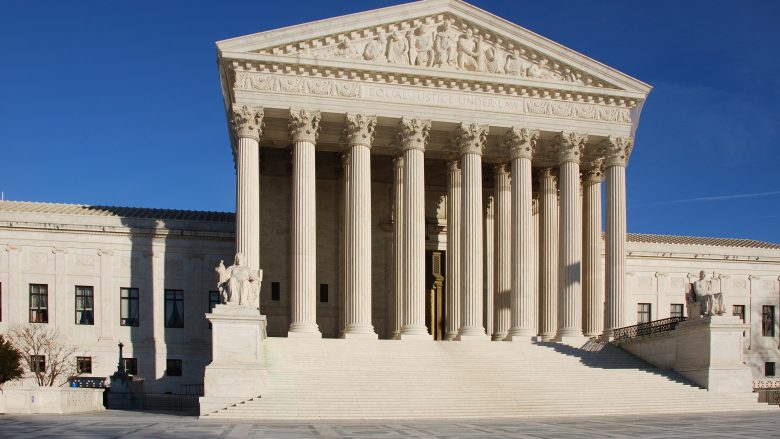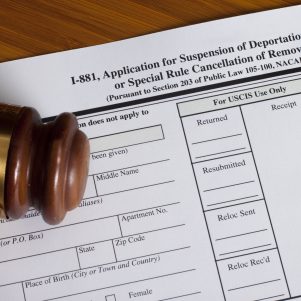This Is No Time For The Supreme Court To Go Wobbly On Abortion
By NBP Editorial Board | October 30, 2021, 12:02 EDT

When Iraq invaded Kuwait in August 1990, the United States and its Western allies, as well as the United Nations Security Council, demanded that Saddam Hussein withdraw from Kuwait. If he did not pull back from Kuwait, Iraq would be subject to economic sanctions and perhaps punitive war by a grand coalition of Western and Middle Eastern allies. At a critical point in the crisis, Margaret Thatcher famously told President George H.W. Bush not to go wobbly on this. The United States, she said, must stay strong and do the right thing. Iraq must withdraw or suffer the consequences.
Forty-eight years after the U.S. Supreme Court decided the Roe v. Wade case by a 7-2 vote, the court now has an opportunity to reverse this execrable decision. The conservative majority on the Supreme Court must not go wobbly on this critical moment in American jurisprudence. The justices, too, must do the right thing and strike down Roe v. Wade as unconstitutional.
For there is no doubt that Roe v. Wade is unconstitutional. The justices of the time cobbled together a series of implausible theories about various amendments of the U.S. Constitution and wove them together to justify a public policy result they liked. Then they forced it upon the entire country, exceeding their authority under the constitution that they pretended to interpret. Roe v. Wade is a disaster of constitutional jurisprudence and a stain upon every member of the court who signed it. It should be thrown out and trampled underfoot as a matter of law and justice, irrespective of what anyone thinks of abortion.
If the current court throws out Roe v. Wade, the court would be giving the power back to the states to regulate abortion, as they had previously had since the beginning of the Republic. The power to pass laws about abortion had resided in the states from the time the Constitution was ratified in 1788 until 1973. The Tenth Amendment to the Constitution, ratified in 1791, confirmed what was already implicit in the Constitution’s enumeration of limited powers. It reads: “The powers not delegated to the United States by the Constitution, nor prohibited by it to the States, are reserved to the States respectively, or to the people.”
In other words, this is not a difficult decision of determining right and wrong. Since the U.S. Constitution never mentions abortion or alludes to it in any way, allowing states to determine their own policy on abortion is, as a matter of law, the right thing to do. It’s also the obvious thing to do. No great powers of wisdom or discernment are needed to overturn Roe v. Wade. All that’s needed is will.
If the conservatives on the court do not lose their nerve, the people in each state would once again be empowered to elect legislators to make informed and democratic decisions about a controversial issue. Representative democracy would once again be restored on a matter of vital public policy. Isn’t this how a democratic country is meant to work?
Roe v. Wade is one of the three worst decisions in the history of the federal Supreme Court. The first – and most think the worst — is the Dred Scott decision of 1857, which led ineluctably to the Civil War. A slave in Missouri sued in state court saying that under federal law he should be declared free because various owners had previously taken him to free states and – crucially – a free territory where Congress had declared slavery was illegal, following the Missouri Compromise of 1820. The slave’s argument in court followed the way the law had previously been understood.
In waded the U.S. Supreme Court, which used tortured reasoning to limit the democratic power of Congress to rule territories – a power expressly given to Congress (in Article IV, Section 3) in the federal constitution. More memorably, the court also held that the United States Constitution did not extend American citizenship to people of African descent, regardless of whether they were enslaved or free, and so the rights and privileges that the Constitution recognizes for American citizens did not apply to them. Therefore, the court said, Dred Scott as a slave couldn’t even bring a lawsuit in an American court to try to claim any rights at all.
The Dred Scott decision wasn’t just wrong because of its public policy conclusion. It was wrong as a matter of law. The original version of the federal constitution implicitly recognized slaves as citizens by counting a portion of them for determining how many representatives each state got in Congress. Furthermore, Congress obviously had the right to decide public policy in territories – it’s right there in the constitution. And even more to the point, the decision was an unforced error – it upended a policy that elected officials had the right to make and that was generally accepted at the time.
An arrogant chief justice, Roger Taney, imagined himself playing statesman and solving a vexing national crisis. Instead, he hurried on the Civil War. More than 600,000 Americans died in the Civil War – more soldiers than had died in all the other wars that the United States has fought over two and a half centuries.
The third-worst decision in the Supreme Court’s history is Korematsu v. United States. Shortly after the United States entered World War II, President Franklin D. Roosevelt signed Executive Order 9066. It authorized the armed forces to remove people of Japanese ancestry from what they designated as military areas and surrounding communities in the United States. More than 120,000 Japanese Americans, two-thirds of whom were citizens of the country, were moved to 26 sites in seven western states. On December 18, 1944, a divided Supreme Court ruled, in a 6-3 decision, that the detention was a “military necessity” not based on race – even though the “necessity” was illusory and the order was manifestly based on race.
As despicable as that decision was, there were at least no deaths that arose from Korematsu v. United States, unlike Dred Scott and Roe v. Wade. Roe v. Wade opened the floodgates to abortion on demand in America. Since that infamous decision 48 years ago, the National Right to Life organization estimates, the lives of more than 61 million babies have been ended through legal abortion. Although the number of abortions in the United States has continued to decline over the past decade, the most recent estimates by the Guttmacher Institute indicate that the lives of approximately 750,000 unborn babies are still terminated each year in America.
Laws passed recently in the legislatures of both Mississippi and Texas and signed by their governors severely restrict abortions in their states. The Mississippi law bans most abortions after 15 weeks – significantly, before fetal viability, meaning before a fetus can live outside the womb. The Texas law passed, with every Republican voting in favor and every Democrat except one voting against the bill. As Texas Governor Greg Abbott said when he signed the bill: “Our creator endowed us with the right to life and yet millions of children lose their right to life every year because of abortion.” He added that the Legislature “worked together on a bipartisan basis to pass a bill that I’m about to sign that ensures that the life of every unborn child who has a heartbeat will be saved from the ravages of abortion.”
The Supreme Court will hear cases dealing not only with the Mississippi law but also a case in which the Biden administration’s Department of Justice is suing Texas to stop the abortion bill just signed into law.
The Supreme Court cannot whiff on this pitch. Over the past decades, a majority of citizens has emerged who believe that abortion should be illegal during the second and third trimesters. Recent polls show that a majority of citizens believe that all abortions are immoral and should at least under some circumstances be made illegal. The laws and customs of America are based on the Judeo-Christian worldview, beginning with the Ten Commandments, and the Bible is replete with verses that say that God knows each person from the time of conception in the womb.
But whether Americans realize and acknowledge the humanity of unborn babies, they should be the ones making the decision about whether to protect them – not unelected judges in black robes elected by nobody.
Reputedly conservative justices on the Supreme Court must ignore the threats from the Democratic Party about packing the court or removing the filibuster. The justices were approved by the U.S. Senate because of their presumed fidelity to the Constitution, and they need to ensure that they decide to reverse the disastrous and wrong-headed Roe v. Wade decision and return the power to the people, as the Tenth Amendment requires. This is no time for the Supreme Court to go wobbly; the court must overturn the fatally flawed Roe v. Wade decision and return the issue of abortion to the states.
New to NewBostonPost? Conservative media is hard to find in Massachusetts. But you’ve found it. Now dip your toe in the water for two bucks — $2 for two months. And join the real revolution.











